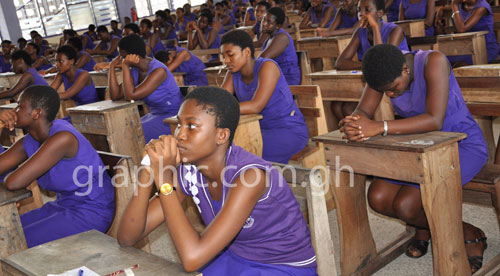Education is foundation for lasting peace — UNESCO
 The work of the United Nations Education, Scientific and Cultural Organisation (UNESCO) is to protect schools and teachers and to bring education to refugees and displaced persons.
The work of the United Nations Education, Scientific and Cultural Organisation (UNESCO) is to protect schools and teachers and to bring education to refugees and displaced persons.
Advertisement
A statement issued by UNESCO and signed by Madam Bokova, the Director General of UNESCO, to mark the International Day of Peace on Saturday, said education was the foundation for lasting peace and the driving force behind freedom and tolerance.
Madam Bokova said education was a fundamental human right, and there could be no justification for depriving anybody of that right.
She indicated that the organisation’s founding values showed that “wars begin in the minds of women and men, and it is in the minds of women and men that the defences of peace must be constructed.”
Madam Bokova said UNESCO saw that as a positive step to lay the foundations of future peace and added that “With this hope in mind, I call upon all Member States of UNESCO, governments and civil society organisations to join their forces, and to join us to make education a force for peace.”
“We must give to future generations a culture of dialogue and build, through education, a world that is not only more connected, but also more compassionate,” she said.
The United Nations observes September 21 each year as the International Day of peace. This year’s celebration is devoted to peace education.
The statement said education stemmed the tide of ignorance and mutual misunderstanding, the means by which disagreements all too often degenerated into violence. Education fosters the culture of dialogue that is necessary to resolve conflicts.
“That is why UNESCO campaigns for quality education for all, going further than the basics of reading and writing.”
“Education must encompass the teaching of human rights, living together and respect for others. Peace education is one of its key components.”
“Every child in the world should know their rights, and learn their own history and that of other peoples, so as to be able to understand the equal dignity of cultures and draw lessons from the crimes and violence of the past.
“This vision is the key to tolerant citizenship in a globalised world. It requires a widespread effort to train teachers and design suitable school curricula,” Madam Bokova said.
She said those principles inspired all of UNESCO’s work, in particular, through the International Decade for the Rapprochement of Cultures (2013-2022), adopted by UNESCO’s General Conference and the United Nations General Assembly.
She noted that “as we mobilise the potential of education to prevent war, we must ensure the quality and continuity of teaching, even in the event of conflict.”
Source: GNA




